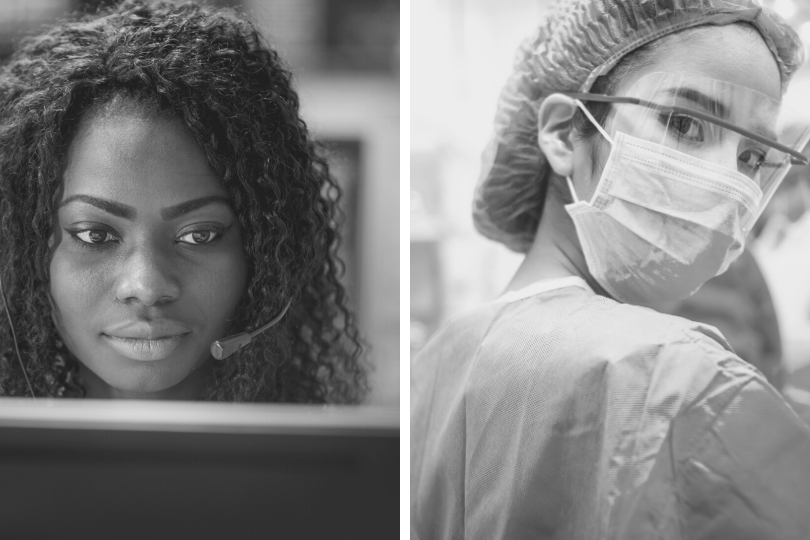
The announcement of the COVID-19 pandemic has caused a lot of questions to go unanswered, but your local governments and agencies are doing their best to get you useful resources. We’ve put together a resource page for our communities to help you get access to the vital information you and your loved ones need.
Emergency services may not be at the top of your mind right now, but if you experience a life-threatening emergency during the COVD-19 pandemic, we want to make sure you know what to expect. There are a few steps your local Public Safety Answering Point, PSAP or a 9-1-1 center, may have taken to protect themselves, the first responders, and you.
First, it’s important to note that 9-1-1 is part of critical infrastructure. That means the services it provides are crucial to the safe functioning of your community. You might recognize emergency services as part of critical infrastructure, but other community components like public works, trash collectors, public health, transportation systems, water supply services, and more are all part of critical infrastructure. Because of this, these resources cannot close down due to a pandemic, or for any reason at all really, and they must take certain steps to protect themselves and you.
At the recommendation of the CDC, 9-1-1 agencies have taken certain precautions to protect the health and safety of their telecommunicators so that they may continue to provide life-saving assistance. These precautions might include:
- Public Safety Answering Points may be locked down to essential personnel.
- Callers may be asked screening questions such as: are you experiencing flu-like symptoms such as a fever or cough? Have you traveled out of the country with the past 14 days? Have you been in contact with someone who may have traveled out of the country within the past 14 days?
- A focus on PPE, personal protection equipment, for first responders.
- Routine calls may not receive a visit from an officer and reports may be taken over the phone.
What precautions are utilized will depend on the individual law enforcement agency. As of yet, we have not seen a huge increase in 9-1-1 calls since the pandemic announcement, however it is important that citizens continue to use this emergency service responsibly. We put together a quick FAQ to help our citizens better understand when it is appropriate to dial 9-1-1.
Should I call 9-1-1 if I have symptoms of COVID-19?
No, only if life threatening. Telecommunicators don’t have the best resources to assist you with handling symptoms. The best person to call is your health care provider. They’ll direct you with next steps. Or, look into getting tested.
Should I call 9-1-1 to report neighbors/friends/family members with COVID-19 symptoms?
No. There is no need to report those around you who may be showing symptoms. By calling 9-1-1 to “report” people with symptoms, you are tying up the emergency number lines and preventing those in actual emergencies from receiving the lifesaving help that they need.
Should I call 9-1-1 if I run out of supplies?
No, but you can dial 2-1-1 to get assistance for essential services.
Should I call 9-1-1 if I have questions about the coronavirus?
No, but you can dial 2-1-1 to reach a 24/7 coronavirus help line or visit 211texas.org.
Pay attention to your local news and follow the suggestions and instructions of your local leadership. By working together and following the guidance of our health care professionals, we’ll be able to get back to normal sooner.